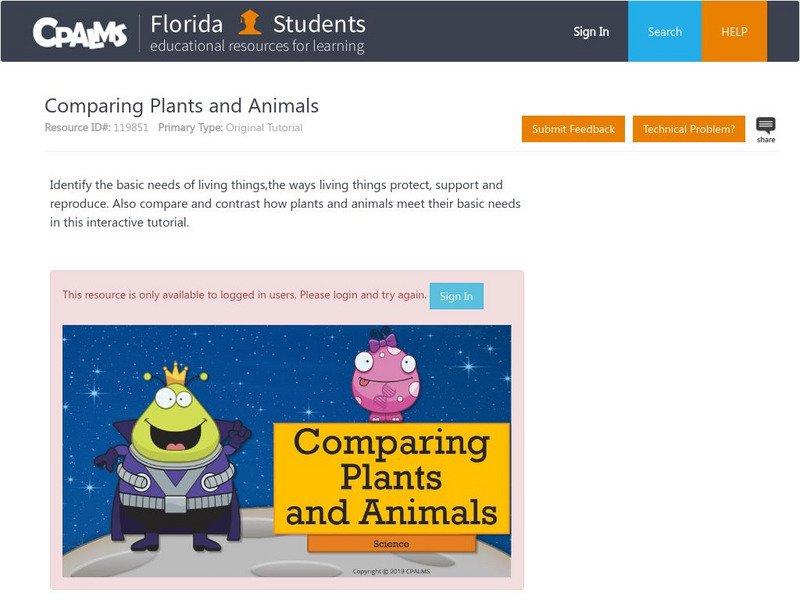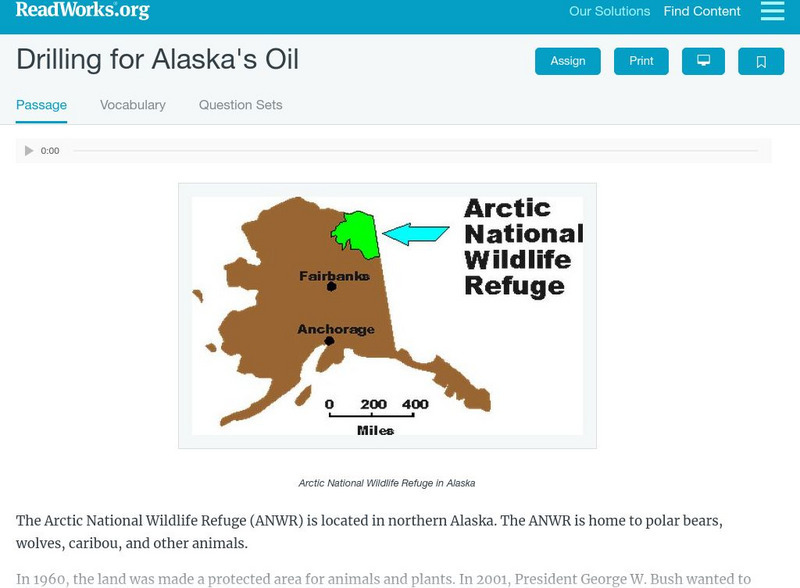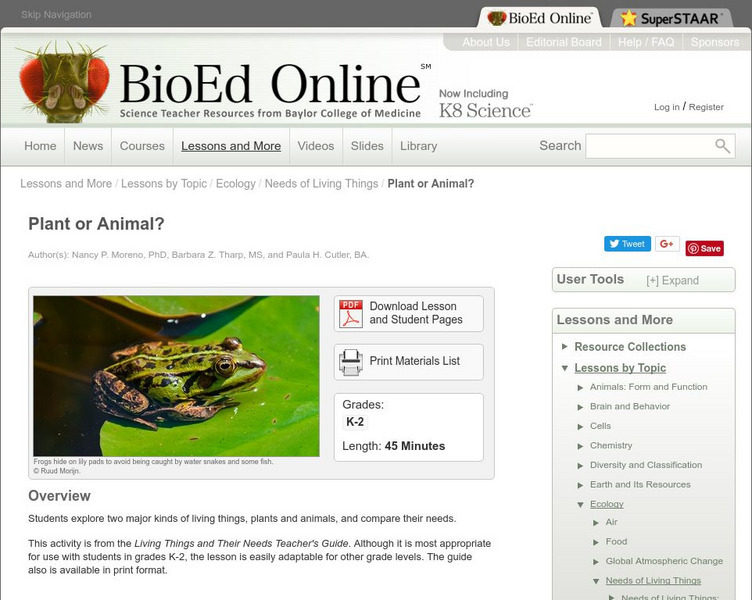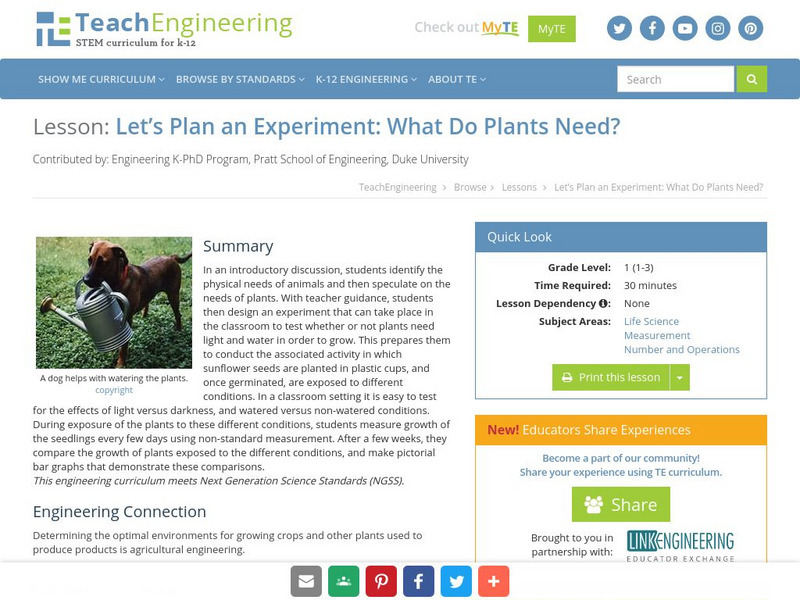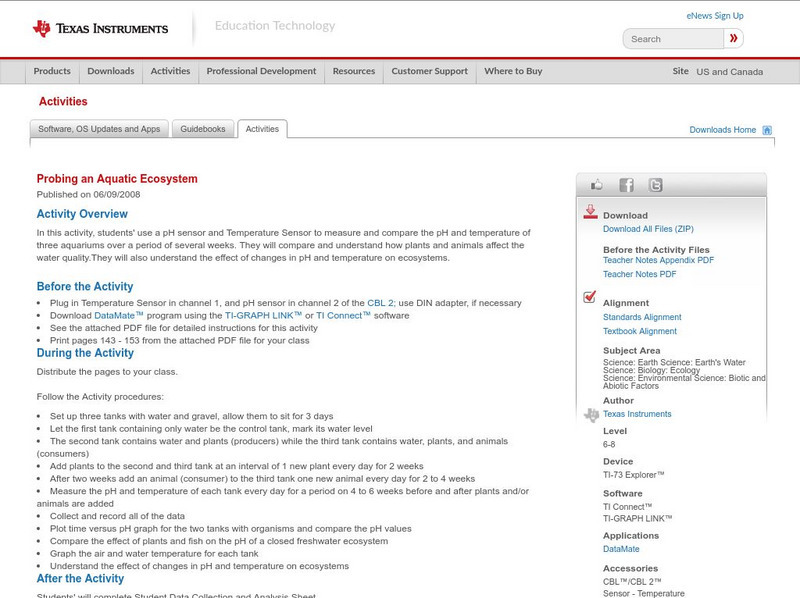Curated OER
The Weather Classroom: Atmosphere
Young scholars explore the planets and their atmospheres online. They write the story of "Goldilocks and the Nine Planets" to explain how each planet's atmosphere differs from Earth's. They design a viable life form.
Curated OER
Marine & Aquatic Habitats -- Journey of a Drop of Water Through a Watershed
Students discuss pollution and the steps in the hydrologic cycle. They follow a drop of water through a watershed simulation. They discover the components of a water cleaning system as well.
Curated OER
Make a Cast of a Tyrannosaurus rex Fossil
Second graders examine the formation of fossils and list the different types. They make cast model of a dinosaur fossil. They write about conditions that are necessary for fossils to form and create a model of a buried fossil.
Curated OER
Which Way to Roots Grow?
Second graders explore roots and how they grow. They observe as seeds planted in various directions grow and record their observations. Students discuss the direction in which the roots are growing.
Curated OER
Biodiversity: El Imposible National Park, El Salvador
Fifth graders explore the concept of how the more diverse an ecosystem is, the more interdependence of species exists within that system. The complex relationships among diverse species are difficult to identify. As species disappear or...
Curated OER
Air Quality and Transportation
Second graders study about air pollution and the effects it has on our Earth. Students tally cars on a sheet that has been categorized as follows: One person in car, two persons in car, or three or more persons in car. Students go to...
Curated OER
Science: What Happens to Create the Lode?
Students understand how mineral deposits are formed and why they are not evenly dispersed. They create and describe three different precipitates from four solutions simulating mineral ore deposit formation in sedimentary rock.
Curated OER
Count Down
Students are introduced to useing websites as a data source. Using bird population predictions, they test their predictions from various websites. They record, organize and graph the data and share their results with the class.
Curated OER
Transmission of Disease
Students provide names of viral diseases that they would possibly like to be infected with today; listing them on the Smart Board. They then come to an agreement about what virus to use and use beakers of fluids to simulate how viruses...
CPALMS
Florida State University Cpalms: Florida Students: Comparing Plants and Animals
A tutorial that compares and constrast plants and animals. Explore how living things their obtain basic needs, protect, support, and reproduce. A PDF file of the tutorial is available.
Utah Education Network
Uen: Trb 4:4 Investigation 1 Identify & Compare Fossils
Fourth graders will look at different items to see if they can recognize fossils.
Woods Hole Oceanographic Institution
Polar Discovery: Compare the Poles
A detailed comparison of many aspects of the two polar regions. Includes physical features, seasons, weather, types of ice, plants and animals, human population, and climate change.
Khan Academy
Khan Academy: Activity: Comparing Crops
Take a closer look at some of the earliest farming civilizations and the plants and animals they domesticated. This quick exercise using the Agriculture and Civilization Infographic has you consider the regional differences in...
Read Works
Read Works: Drilling for Alaska
[Free Registration/Login Required] Students read about drilling for oil in Alaska. A question sheet is available to help students build skills in comparing and contrasting.
BioEd Online
Bio Ed Online: Living Things and Their Needs: Plant or Animal?
In this lesson, learners investigate and compare the needs of plants and animals. The lesson can be downloaded in PDF format.
Science Education Resource Center at Carleton College
Serc: Phenology and Weatherguide Calendar
An activity where students observe the grounds around their school to study the plant and animal life cycle. Students will make a map of the school to keep track of their observations. Students will also compare their phenology calendar...
TeachEngineering
Teach Engineering: Who Needs What?
The teacher leads a discussion in which students identify the physical needs of animals, and then speculate on the needs of plants. With guidance from the teacher, the students then help design an experiment that can take place in the...
Michigan Reach Out
Reach Out! Michigan: Animal or Plant
This site provides a basic lesson plan from Reach Out! Michigan comparing plants to animals.
CK-12 Foundation
Ck 12: Fourth Grade Science: Life Science: Habitat Destruction
Looks at ways plants and animals, including humans, can impact the environment in this learning module.
Alabama Learning Exchange
Alex: What Is Alive?
This lesson is the opening lesson for a unit of study entitled "Why Doesn't A Caterpillar Grow Up To Be An Oak Tree?" during which learners take a look at life cycles of plants and animals. This lesson will encourage students to explore...
TeachEngineering
Teach Engineering: Finding Food in the Amazon
In this activity, the students will investigate a variety of plants and animals common to the Amazon through research. They will determine the plant or animal characteristics that make them edible or useful for the trip and learn to...
Other
Science and Kids Activities: Pollination and Seed Dispersal
Second graders learn how plants depend on animals to disperse their seeds. Students will learn about ways that animals can disperse seeds. They will design their own model and compare it to the real action of plants and animals. In the...
Texas Instruments
Texas Instruments: Probing an Aquatic Ecosystem
In this activity, students' use a pH sensor and Temperature Sensor to measure and compare the pH and temperature of three aquariums over a period of several weeks. They will compare and understand how plants and animals affect the water...
Houghton Mifflin Harcourt
Harcourt: School Publishers: Exploring Ecosystems
Compare and contrast three very different ecosystems - the Sonoran Desert in Arizona, the Florida Everglades, and the Arctic Coastal Plain in Alaska. Learn what makes each of them unique, and about the adaptations plants and animals had...











